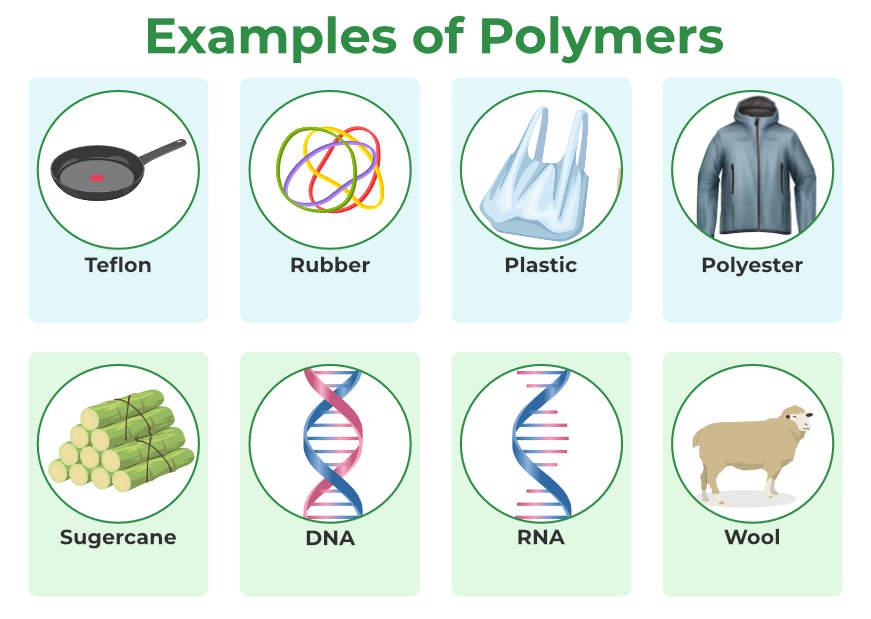Leading Uses of Polymers: Enhancing Everyday Products
Leading Uses of Polymers: Enhancing Everyday Products
Blog Article
Exploring the Varied Applications and Benefits of Polymers in Different Industries
Polymers, with their varied array of buildings and performances, have actually ended up being indispensable in numerous sectors, each gaining special gain from their application. Polymers. From improving safety and efficiency in the automotive market to transforming clinical gadgets in the healthcare market, polymers play a critical duty. Moreover, their green nature is modifying the landscape of sustainability methods. As we look into the depths of polymers in electronic devices, we reveal innovative technologies, while their structural honesty transforms the realm of building and construction and framework. The pervasive impact of polymers throughout markets is a testimony to their versatility and versatility, forming the future of many industries.
Automotive Sector Applications
Polymers play a critical duty in enhancing the performance and resilience of numerous components within the auto field. One famous usage of polymers in the automobile industry is in the production of light-weight elements.

Medical Care Market Benefits
In numerous health care applications, the benefits of utilizing polymers are commonly identified for their diverse variety of helpful residential or commercial properties. Polymers play a vital role in the health care industry because of their convenience, biocompatibility, and cost-effectiveness. One of the key benefits of polymers in health care is their capacity to be tailored to details needs, such as versatility, longevity, and biodegradability, making them optimal for a large range of clinical applications.
Polymer-based materials are extensively utilized in clinical gadgets, such as catheters, implants, prosthetics, and drug shipment systems, as a result of their biocompatibility and capability to simulate all-natural tissues. These products can reduce the risk of sensitive reactions or beings rejected, enhancing person security and end results. Additionally, polymers are lightweight, making them suitable for wearable medical tools and making sure patient comfort.
Moreover, polymers allow the advancement of ingenious treatment methods, such as hydrogels for tissue design and nanocomposites for targeted drug delivery. Their ease of handling and sanitation makes them essential for keeping high requirements of hygiene in health care settings. In general, the varied advantages of polymers add dramatically to developments in clinical technology and individual care.
Environmental Advantages of Polymers

In addition, polymers can add to power savings as a result of their light-weight nature. In markets such as transport, lightweight polymer materials can help minimize gas consumption and greenhouse gas emissions. Additionally, polymers can allow the development of energy-efficient items such as insulation products that boost energy preservation in structures.
Furthermore, polymers play a crucial role in minimizing water pollution. The usage of polymer-based filtration systems can properly remove toxins and impurities from wastewater, securing water resources and ecological communities. Overall, the environmental advantages of polymers make them beneficial possessions in promoting sustainability and environment-friendly techniques throughout various industries.
Polymers in Electronics and Modern Technology
Taking into consideration the boosting need for innovative and sustainable solutions in modern-day markets, the i loved this integration of innovative polymer technologies in the world of electronic devices and technology has become a crucial method for driving effectiveness and efficiency. Polymers have actually reinvented the electronics sector by making it possible for the production of lighter, extra flexible, and long lasting digital devices. From smartphones to clinical tools, polymers play an important function in improving item design and capability.
One significant benefit of polymers in electronics is their shielding homes, which assist shield fragile digital parts from ecological factors and electrical interference. Additionally, polymers are essential in the advancement of adaptable screens, wearable modern technology, and published electronic devices, providing endless opportunities for producing clever and interconnected gadgets.
Furthermore, using polymers in electronic product packaging has actually resulted in developments in miniaturization and thermal monitoring, enhancing the a fantastic read overall efficiency and dependability of digital systems. As technology remains to advance, the versatility and flexibility of polymers will definitely drive additionally technology in the electronic devices sector, forming the future of technology.
Duty of Polymers in Building And Construction and Infrastructure
Polymers use numerous benefits in the construction sector due to their adaptability, sturdiness, and cost-effectiveness. One essential role of polymers in building and construction is their usage in coverings and sealers, offering protection versus ecological aspects such as dampness, UV radiation, and corrosion.
Additionally, polymers play a crucial role in sustainable building techniques by making it possible for the advancement of energy-efficient frameworks. Insulating materials made from polymers assist control interior temperature levels, minimizing the need for heating and cooling systems and inevitably decreasing power usage. In addition, making use of polymer-based composites in framework jobs such as bridges and roadways improves their longevity and minimizes maintenance expenses. Overall, the consolidation of polymers in construction and facilities showcases their substantial effect on modern engineering techniques.
Final Thought
Finally, polymers play a critical function in different markets such as automobile, healthcare, environmental, electronic devices, and construction. Their functional homes make them valuable in developing cutting-edge remedies and items. From enhancing fuel efficiency in lorries to boosting medical gadgets, polymers supply many benefits. Furthermore, their effect on reducing waste and advertising sustainability highlights their significance in modern-day applications. The widespread usage of polymers shows their significant contribution to advancing innovation and enhancing lifestyle.
Report this page